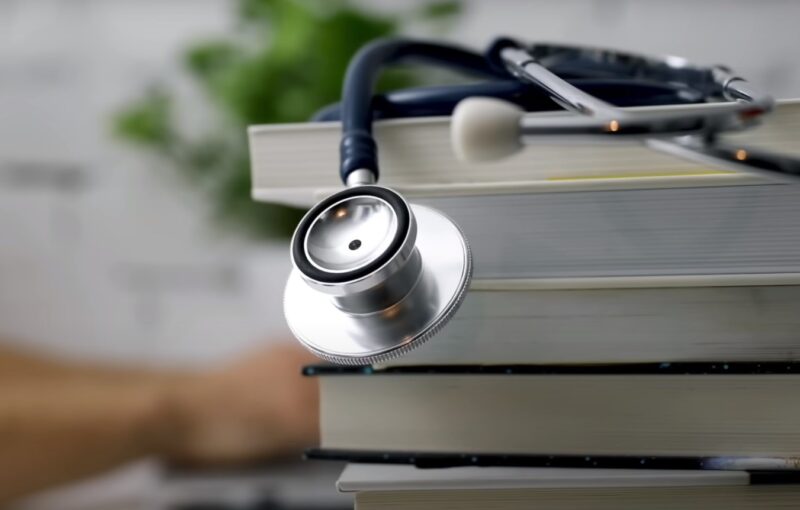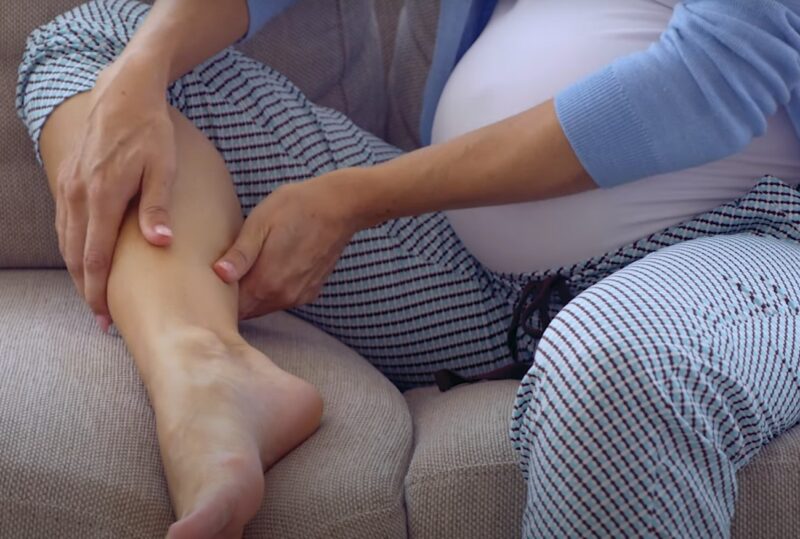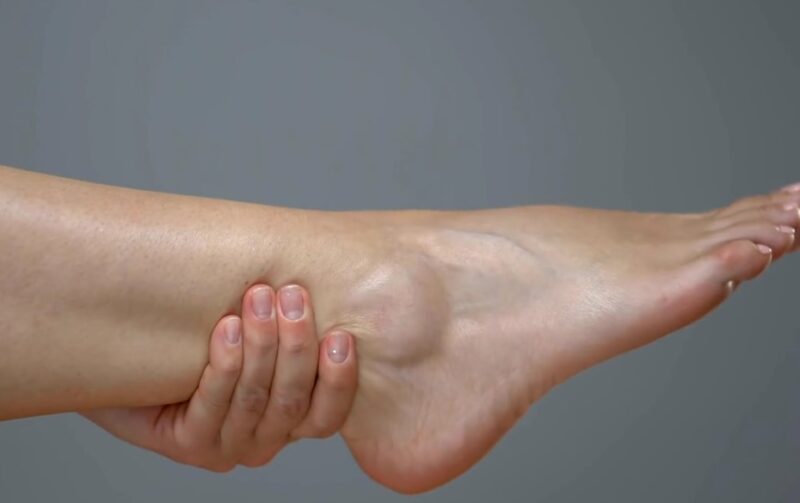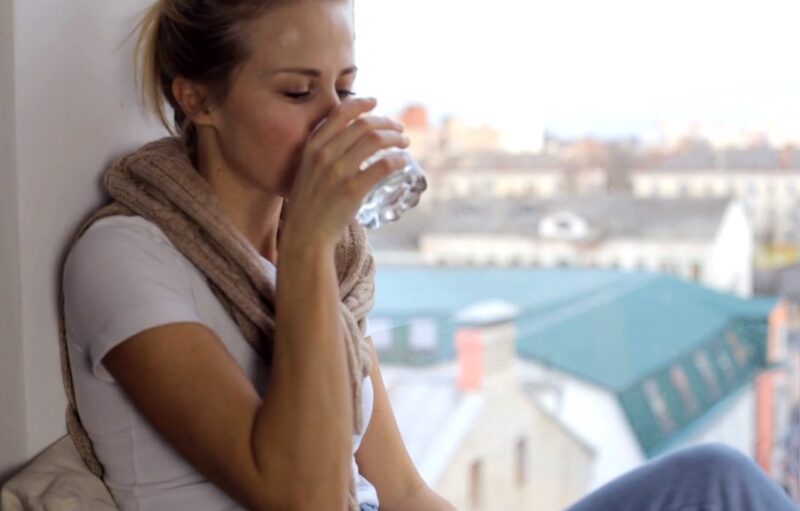What is Restless Legs Syndrome?

RLS, short for Restless Legs Syndrome, is also known as Willis-Ekbom disease for those who prefer its formal name.
Need more details?
Well, Restless Legs Syndrome is classified as both a sleep and a neurological sensory disorder, which essentially means it affects your nervous system.
This condition triggers uncomfortable feelings in the legs, varying greatly from one individual to another. My sister, who started experiencing RLS during menopause (this type is called Secondary RLS), describes the sensation as if she’s consumed too much Coca-Cola. On the other hand, I’ve been dealing with RLS my entire life (yes, that’s Primary RLS for me), and for me, it’s like a deep, burning soreness within the muscle.
Describing it is challenging because it’s not a sharp pain like being pricked with a needle. Instead, it’s a warm, throbbing soreness that intensifies over time. It’s akin to a sore tickle. It’s unlike any other kind of discomfort I’ve experienced, and I’m not even sure if “pain” is the right word. Yet, it’s painful. (My doctor certainly enjoys trying to decipher descriptions like this.)
Regardless of whether it’s Primary or Secondary RLS, the sole relief comes from moving your legs. And this movement isn’t always under conscious control. Your legs might jerk spontaneously, beyond your desire to move them or your ability to prevent it. This can happen even while you’re asleep or attempting to fall asleep.
What Causes It?

When Do You Get Rls?
Usually when you’re relaxing, so in bed or watching TV on the sofa. But it can also hit me in enclosed spaces while I’m travelling on a train, or a bus, or an airplane.
There’s no rhyme or reason about when it hits. I can do the same thing day after day and only be affected some times.
Does It Only Affect Your Legs?

Mostly. However, I’ve had “Restless Arms Syndrome” a couple of times. But usually it is just the legs – and it can be any part of them, from the thighs down to your feet.
So, How Do You Treat Restless Legs Syndrome?
1. Magnesium –Often discussed in menopause Facebook groups as a potential remedy for Restless Legs Syndrome (RLS). The theory is that RLS could be due to a lack of magnesium or the body’s inefficient use of its magnesium stores.
Despite trying various forms of magnesium, I’ve found no personal relief from it. Yet, it has been beneficial for some people I know, who have taken it in tablet form or used magnesium sprays (which made me itchy).
Although it didn’t work for me, I recommend magnesium as the first option for newcomers to try, acknowledging its success for others. However, for those who’ve dealt with RLS for years, suggesting magnesium as a catch-all solution can be frustrating.
I have.
Trust me on this.
2. Exercise – It might sound repetitive, but exercise can indeed alleviate symptoms of restless legs.
A brisk 30-minute walk three to four times a week could significantly improve sleep quality, reducing the need for nocturnal leg movements.
Swimming and yoga are also effective; I personally vouch for Chas Rough’s Yogamazing workouts for their brevity and effectiveness.
However, exercising too close to bedtime or overexerting during workouts might worsen RLS symptoms.

3. Sex – ha ha! That made you sit up, right? You weren’t expecting this to be on the list, were you?
And no, it’s not clickbait. Sex releases dopamine and some research shows that it can help RLS. And without getting too personal, I’m not disagreeing…
If you don’t have a partner, head off to Ann Summers. A report from 2011 found that going-it-alone also helped – one guy said that masturbating had given him complete relief from his Restless Legs Syndrome. It’s thought the dopamine gives enough relief to help you get to deep sleep.
As possible treatments go, it’s not a bad one.
4. Overhaul your lifestyle – if you think your RLS is caused by being overweight or drinking, then simply losing weight and cutting back on alcohol could do the trick.
Researchers have also found that people with RLS can be more likely to develop cardiovascular problems, so making sure you’re living as healthily as possible will be a double whammy.
5. Get a good sleep routine – make sure you go to bed and wake up at the same time and keep your room nice and dark and cool.
And put your phone and any electronic device away. After you’ve finished reading this, of course.
6. Vitamin D – there is a school of thought that Vitamin D can help ease the symptoms of Restless Legs Syndrome. A study from 2014 certainly found that people who had Vit-D deficiency and RLS and then took a Vitamin D supplement gained relief. So if you’re low on Vitamin D, get yourself to the health store.

7. Put a bar of soap in your bed – bit of an oddball this one. The theory is that if you put a bar of soap at the bottom of your bed, under your sheets, then it’ll stop your RLS. How? I have no idea whatsoever and it sounds nuts to me. I mean, there is no science to it and I can’t see any sense in it.
But when you’ve not slept in a week, you’ll try anything. If that works through a placebo effect – to be honest, I don’t mind. If it works, it works. I don’t think it will, tho…
8. Hog the cold spot – again, this has no science backing it, but I find getting my legs in the cold really helps. The National Sleep Foundation and also the Restless Legs Syndrome Foundation (which is also a great source of help in general) both recommend hot and cold compresses to help.
9. Your GP – this one will work. Or it did for me.
I first sought medical help for my Restless Legs Syndrome (RLS) after two sleepless weeks. My condition worsened after starting sertraline, a fact confirmed by a psychiatric nurse who noted it could amplify RLS symptoms.
My doctor then prescribed Ropirinole, a medication also used for Parkinson’s Disease patients. Adjusting the dose took some time, leaving me feeling quite disoriented initially. However, once we found the right dosage, it significantly improved my condition.
To those unfamiliar, RLS might seem trivial, but for those affected and their partners, it can significantly disrupt life.
Final Words
The diversity in triggers and effective treatments underscores the importance of personalized approaches to managing RLS. From lifestyle changes and natural remedies to medical interventions, the journey to alleviating symptoms is highly individualized.
Sharing experiences and strategies, as done in this guide, enriches our collective knowledge and offers hope and potential pathways for those struggling with RLS, especially during transitional life phases such as menopause.
As research continues to unfold, it’s crucial to keep an open dialogue and support each other in navigating this perplexing condition.
